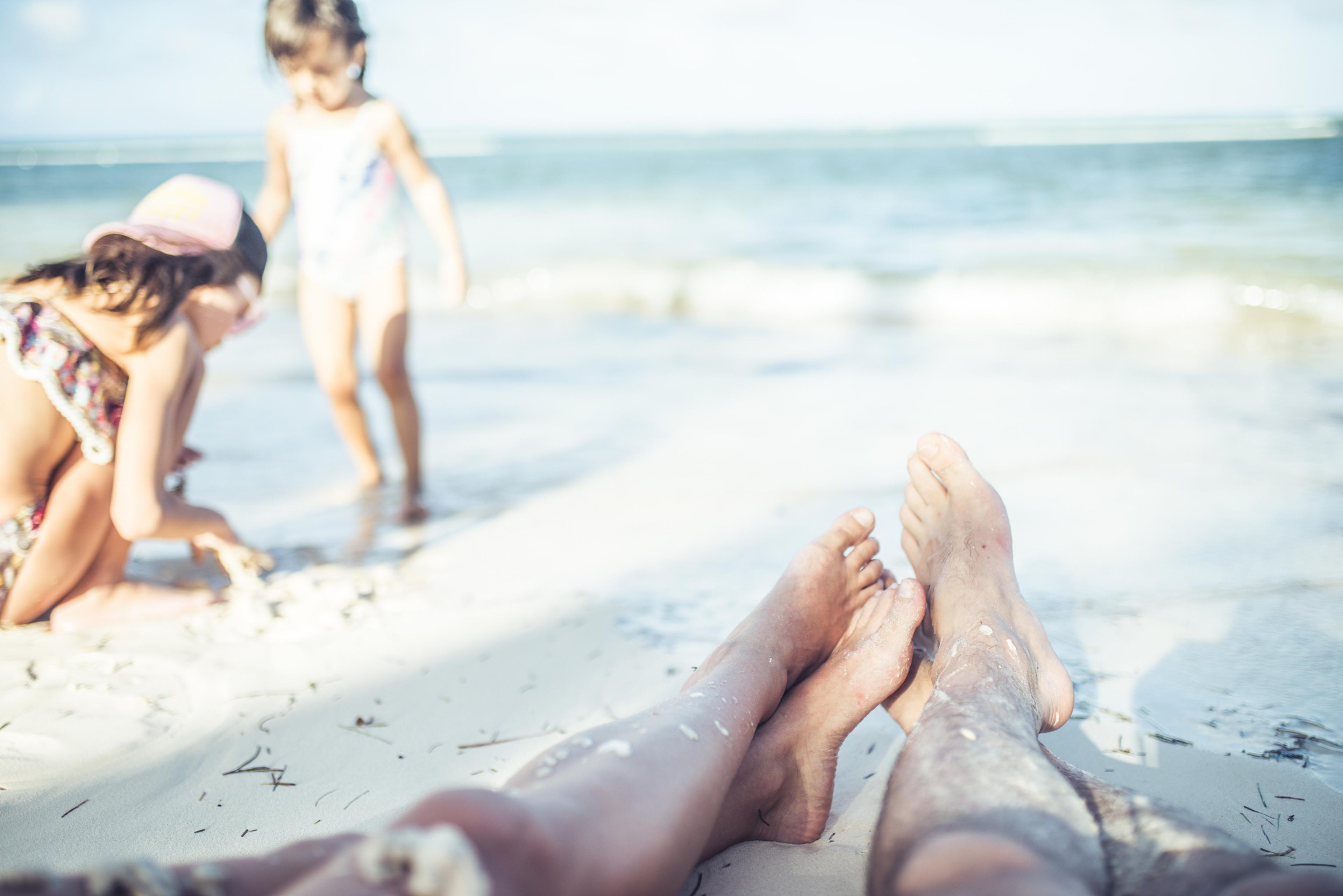Foot Safety Tips for Adults and Children

Dr. Angela Seabright
| 3 min read

The average American takes more than 5,000 steps a day. Feet must withstand wear from carrying body weight and standing or moving on hard surfaces. Feet put up with even more when someone is being active and playing sports.
Summertime comes with unique challenges that can harm foot health and safety. With increased time spent outdoors, barefoot, or in open-toed shoes, people need to take care to prevent injuries and burns to their feet.
Tips for choosing proper summer footwear
Sandals, flip-flops, slides and open-toed footwear often lack good protection and support. When choosing shoes, the pair should have:
- A proper fit on the toes, arch, ball and heel of the foot
- Even weight distribution through the foot
- No pinching, rubbing, or uncomfortable feelings of friction
- A leather upper and stiff heel counter
- Appropriate cushioning
- Flexibility at the ball of the foot
These qualities keep feet and ankles secure, especially compared to shoes with little structure or coverage. While there may be a time and a place for sandals, they have inherent shortcomings compared to other footwear for foot safety and protection. Here are some common pitfalls of summer footwear and how to deal with them.
Flats, Slides and Flip-Flops
These have inadequate support and protection for feet. Avoid wearing for extended periods of time; leave them for the beach or the shower.
Open or Peep-toe Sandals
These cause more pressure on the toes, ball and heel of the foot. They also increase the risk of bunions, hammertoes and corns with extended use.
Strapped or “Gladiator” Sandals
These can cause irritation, callouses, and corns, especially if they are ill-fitting. While these straps add more support and sun protection, they are not recommended for physical activity or long periods of time. Make sure the heel and toes don’t stick over the sole.
Instead, opt for footwear options that give more support and protection. If sandals must be worn, look for options with insoles, heel cups, soft and cushy materials, adjustable straps and thick soles. Look for sandal models with the APMA seal of approval. Orthopedic and recovery sandals are good options.
For more active summer pastimes, seek out footwear with the proper protection and support for the activity. Look for APMA-approved sports shoes, sneakers, running shoes and walking shoes. To help prevent injuries, the APMA recommends rotating shoes between runs and replacing them every 250-500 miles.
Protecting feet from the sun
Feet can be sunburned just like any other area of the body. In fact, they are one of the most overlooked areas when it comes to sun protection and skincare.
The dangers of walking barefoot
With increased humidity, heat and time spent outdoors, it may be tempting to spend increased time barefoot in the summer. There is even a trend of people going barefoot in public for activities.
Walking barefoot opens feet up to a myriad of risks and dangers including:
- Sunburn
- Damage from foreign objects
- Bacterial infection
- Foot and ankle injuries
- Burns from surfaces
Angela Seabright, D.O., is a care management physician at Blue Cross Blue Shield of Michigan. For more tips, visit AHealthierMichigan.org.





